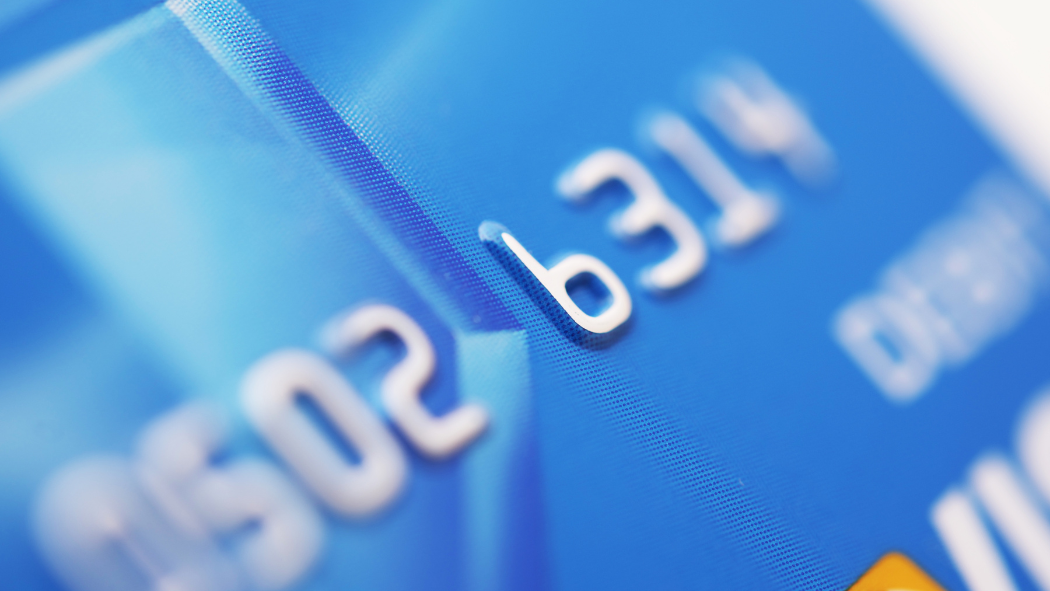Debit Cards That Build Credit
In this article, you will discover how debit cards can be one of the valuable financial tools in investment.
If you are looking to invest as an expat or high-net-worth individual, which is what I specialize in, you can email me (advice@adamfayed.com) or WhatsApp (+44-7393-450-837).
Introduction
First, I’ve written a few articles regarding credit cards and how they are helpful in building credit.
Did you know that debit cards are also essential for someone who wants to improve their credit profile?
Did you?
There has been some news regarding how you can build credit with the help of debit cards.
Do debit cards really help in building credit?
Today, I want to shed some light on whether you can build your credit using a debit card.
Please follow till the end to get the exact information concerning building a credit score with a debit card.
First, let us hear the words of ‘Experian,’ a credit reporting agency for the past decade.
Table of Contents
What Experian Says
A debit card is typically not practical for credit building.
If you have a limited credit history or wish to enhance your credit score:
— Consider becoming a user who is authorized on someone else’s credit card
— Opening a credit card in your name
Using your debit card responsibly has several advantages, such as preventing overspending and avoiding overdrafts in your bank account.
However, it generally does not contribute to building your credit or impact your credit score.
In contrast, loans and credit cards are treated differently.
They are reported to credit bureaus and have an influence on your credit report and score.
Therefore, if you want to establish credit, your debit card will unlikely play a role.
Fortunately, there are alternative methods to achieve this goal.
When you make a transaction with a debit card, the funds are immediately deducted from your checking account.
Since you are using your own money in real time, it does not establish or maintain credit.
Credit is typically established when you borrow money from a financial institution, as with credit cards.
Example:
For instance, when you use a credit card, the creditor pays the payment on your behalf, which is excellent.
You accumulate a balance that you are responsible for repaying.
Back To The Article
Many creditors report your payment history and account balances to major credit bureaus like Experian, TransUnion, and Equifax.
These agencies maintain credit reports in your name, and the information is crucial for determining your credit scores.
While some financial institutions may report debit card transactions to credit bureaus, this is not common practice.
Furthermore, using your debit card as ‘credit’ during checkout does not help you build credit.
It only changes the transaction process with the merchant, and the funds still come from your checking account.
If you are looking to build credit, consider the following strategies:
— Become an Authorized User
Ask somebody close to connect you as an authorized user for their cards.
You’ll receive a card in your name, and if the credit card issuer reports user accounts to credit bureaus, it can have a positive impact.
— Open a Credit Card
If you have a limited credit history, consider a secured credit card, which necessitates a refundable deposit that determines your credit limit.
Responsible usage and on-time payments can help build your credit, and some issuers may convert it to an unsecured card over time.
— Consider a Credit-Builder Loan
These loans work by making fixed monthly payments over a specified period, with payment history reported to credit bureaus.
Once the term ends, you’ll receive your money back, making it suitable for those with limited credit history.
— Get Credit for Rent Payments
Adding your rental history to your credit file can boost your credit score.
Some services, like Experian Boost, can include rent payments on your credit report, provided you meet specific criteria.
— Finally
In summary, while using your debit card responsibly is wise, it generally does not aid in building credit.
To establish or enhance your credit score, consider alternative methods that involve responsible credit use and payment reporting to credit bureaus.
Building credit demonstrates to creditors that you are a reliable borrower capable of managing payments effectively.
You are entirely mistaken if you think you can build your credit score through a credit card.
Especially if you think you can’t get to change your credit score with the help of a debit card.
This was a long time ago, and things have changed, especially regarding the debit cards.
I have an employee who struggled with the same issue, and I was able to help him with the problem.
About My Employee
There was an employee of mine, whom I don’t wish to name, who suffered from the same experience.
Let us name him “John,” and, to be precise, John had no credit history.
One day, John came to me and asked me how he could get a good credit history as he had none.
He was desperately in need of money, and I understood his urgency.
I told John to take a loan and pay it off timely, which would increase his stats related to timely payments and clearing history.
John told me that he never took a loan and had a thin credit profile, which was unable to fetch him a loan.
I did suggest to him what anyone would recommend in that specific circumstance.
I asked him to get a secured loan, meaning he should use something as leverage to get the required loan.
Unfortunately, John had nothing to keep as collateral, which became the cause of the denial of his loan.
Again, I told him about a secured credit card accepting a fixed deposit as collateral.
Nonetheless, John didn’t have any money to put some cash as collateral and get approved for that.
I wanted to help John wholeheartedly, yet I was out of options, and that’s when I was about to learn about credit repair agencies.
Unlike John, who was out of options, you should never seek something out of the ordinary.
Let’s Lean Some More
That’s the specific question you all have been waiting for, i.e., do debit cards build credit?
But first of all, let us know about a few details regarding how credit repair agencies work.
Many of us aspire to have good credit because our reports and scores significantly shape financial decisions that affect our lives.
Securing a loan, obtaining favorable interest rates, and getting a job can all be influenced by the contents of our credit reports.
For individuals grappling with poor credit reports and low credit scores, credit repair might appear appealing to resolve credit-related issues.
However, as you will soon discover, there are superior strategies for rebuilding your credit.
What Is Credit Repair?

Credit repair involves another party, often called a credit repair organization or credit services organization.
These agencies attempt to remove information from your credit reports in exchange for a fee.
These entities operate for profit and market their services to help individuals enhance their credit.
Some companies claim that their services are aimed at assisting consumers in eliminating inaccurate or unverifiable data from their credit reports.
Many credit repair companies seek to remove negative yet accurate information from credit reports before their natural expiration date.
If your credit history contains inaccurate information, there are steps you can potentially take to rectify it in the U.S.
The Credit Repair Organizations Act
The CROA not only defines the concept of a credit repair organization but also sets forth regulations governing the conduct of these companies.
Enacted in 1996, CROA outlines the actions that credit repair companies must undertake and those they must refrain from to comply with federal law.
Practices prohibited under CROA include:
— Advising credit repair customers to provide false information to credit reporting agencies.
— Instructing credit repair customers to alter their identification to avoid association with their credit information.
— Charging credit repair customers fees for services that have not been fully rendered.
— Guaranteeing the removal of information from the credit reports of their customers.
CROA also mandates that credit repair companies inform their clients of the following:
— The right to dispute their own credit report information at no cost.
— The ability to take legal action against the credit repair company if it violates CROA.
— Credit bureaus may still make mistakes despite reasonable procedures to ensure credit information accuracy.
— Credit repair companies are prohibited from embedding these notices within their contracts’ language.
Instead, these disclosures and others must be presented separately in a standalone format.
Moreover, credit repair companies are prohibited from coercing or enticing customers into waiving any of the rights above. Any attempt to do so would violate CROA.
What Do Credit Repair Companies Do?
In essence, credit repair companies act as intermediaries between you and either credit bureaus or the entities that have reported your credit information to these bureaus.
These entities that furnish data are often debt collectors or financial service providers, such as banks and credit card issuers.
The objective is to persuade the credit bureaus or furnishers to either erase or modify the credit information to benefit the consumer.
Communication between credit repair companies and credit bureaus or furnishers can take place through the Internet, telephone, or postal mail
Historically, postal mail has been the preferred method credit repair companies use for various reasons.
Sending a few letters to credit bureaus may seem rudimentary, but it aligns with the strategies employed by credit repair companies.
Some credit repair companies use a tactic called “jamming.”
This means they send lots of repetitive and unnecessary letters to credit bureaus and the companies that provide your credit information.
The idea behind jamming is that if they flood these organizations with numerous dispute letters about the same issue.
There’s a chance that, at some point, someone might not process the dispute within the 30-day limit.
Especially required by the Fair Credit Reporting Act (FCRA). This could lead to the removal of the disputed item from your credit report.
Credit repair companies usually charge in one of two ways.
Some have a subscription model, where they bill you at the end of each month for services performed in the previous month.
Monthly fees typically range from $50 to $100.
With this payment structure, the credit repair company wants to keep you as a customer for as long as possible.
The other payment method is called ‘pay per delete’.
The company only charges you when they successfully remove an item from your credit report.
This approach aims to make customers happy because they only pay for actual results.
It also allows credit repair companies to follow the Credit Repair Organizations Act (CROA) because they don’t charge until they achieve results.
Does Credit Repair Work?
Certain credit repair companies claim to have removed millions of negative items from credit reports.
There’s not enough reliable data to confirm how effective they are.
We don’t have information on how credit repair impacts customers’ average credit scores, the percentage of disputes that lead to deletions, or the average cost for customers.
Since credit repair companies can’t do anything you can’t do yourself, it’s better to ensure your credit reports are accurate.
It’s a free process, and it’s always been free.
Remember that accurate negative information will automatically get removed from your reports after seven to ten years.
Do Debit Cards Build Credit Scores?
I’m baffled.
Debit cards serve as valuable tools for:
• Everyday purchases
• Receiving direct deposits from employers
• Spending through online banking
However, they generally do not contribute to the establishment of a positive credit history.
While most debit cards do not impact your credit score, a few credit-building debit cards and secured cards are designed to help individuals safely build their credit history.
How do credit-building debit cards function?
Typical debit cards are associated with deposit accounts, where you can only spend up to the available balance in your account.
Since you are not borrowing money, conventional debit cards do not become part of your credit history.
On the other hand, credit-building debit cards combine the features of both a debit and a credit card.
They essentially function as secured credit cards but with a unique security deposit.
A linked, existing bank account typically secures credit-building debit cards.
The balance in this linked bank account serves as your security deposit and determines your spending limit.
The balance is usually repaid from the linked bank account when you use the card for purchases.
These payments are then reported to credit bureaus, assisting in the development of a positive credit history.
Unlike most secured and unsecured credit lines, which often come with interest charges, credit-building debit cards are typically fee-free.
They often do not have annual fees or an APR (annual percentage rate) like traditional credit cards.
Best Credit Building Debit Cards

Based on the information provided by a reliable website, here are some of the best debit cards that build credit.
Extra Card
Extra is a fintech company partnered with Evolve Bank & Trust and Patriot Bank, N.A.
The Extra Card is a credit-building debit card linked to your existing bank account.
It sets your spending limit based on your bank account balance, called your Spend Balance.
This card offers extra pay for purchases and reimburses itself the next business day.
At the end of the month, Extra reports your transactions to Experian and Equifax to build your credit history.
Plans cost between $149 to $199 annually.
Current Build Card
Current is a fintech company in partnership with Choice Financial Group and Cross River Bank.
The Current Build card is a secured, credit-building charge card.
It functions like a digital checking account with no credit check, security deposit, APR, or annual fee.
You decide the spending balance by adding money from your Current account.
Late payments incur a 3% fee.
Fizz Debit Card
The Fizz debit card helps build your credit score and offers cashback rewards.
It’s open to everyone, designed for college students, and connects to your existing bank account.
Your spending limit adjusts daily based on your linked bank account balance.
Payments are reported to Equifax, Experian, and TransUnion.
Cashback rewards are available when spending with participating merchants.
Chime Credit Builder Card
Chime is a fintech company partnered with The Bancorp Bank, N.A., and Stride Bank, N.A.
The Chime Credit Builder Card is a secured credit card with no credit check, annual fees, or APR.
Your spending limit is determined by transferring money from your Chime account.
Payments are reported to Experian, Equifax, and TransUnion.
You need a Chime Checking Account and qualifying deposits of at least $200 to qualify.
Step Card
Step is a mobile-first banking app for kids, teens, and adults.
The Step Card helps build credit once the user turns 18 and opts in.
Payments are automated, and there are no credit checks, APR, or monthly fees.
Your spending limit is based on your deposit account balance.
Reported payments cover the last two years to credit bureaus.
Varo Believe Card
Varo is an online bank offering the Visa Varo Believe card to build credit.
You set your spending limit with no interest, monthly fees, or hard credit pull.
You transfer funds to the Varo Believe Secured Account to determine your spending limit.
Payments are reported to credit bureaus.
You need a Varo Bank Account to get the Believe Card.
Credit Karma Credit Builder Plan
Credit Karma offers a Credit Builder plan, which is a credit builder loan.
Regular deposits into a savings account build your credit history with no fees, interest charges, or hard credit pulls.
Payments are reported to all the three essential credit bureaus.
To qualify, you must have a Credit Karma Money Spend account.
Affirm Card
Affirm offers a card with point-of-sale loans for purchases, which can help build credit.
You apply for a payment plan before or up to 24 hours after a purchase.
Payments are reported to Experian.
Qualification may require a healthy credit profile.
You must have an Affirm account.
Sequin Rewards Debit Card
Sequin offers tools to monitor and repair credit history.
It includes a high-yield checking account with credit monitoring features.
The card itself does not build credit.
Sesame Cash Prepaid Debit Card
Sesame Cash, backed by Community Federal Savings Bank, offers a prepaid debit card to build credit.
You open a Sesame Cash account and use the credit builder product.
Funds from your account act as a security deposit for a virtual Secured Credit Card.
Payments are reported to major credit bureaus.
It costs $9.99 monthly, with potential fees waived under certain conditions.
Advantages of Credit-Building Debit Cards
No Interest Charges: Credit-building cards typically do not impose any APR (Annual Percentage Rate), meaning you won’t incur interest fees.
— Reduced Fees
Unlike regular credit cards, most credit-building debit cards do not come with annual fees, and many do not charge monthly maintenance fees either.
— Secured Accounts
These cards often require some form of security, such as a linked bank account or a security deposit.
This makes them a safer borrowing option with a lower risk of accumulating unmanageable debt.
— No Credit Check Hassles
Most of these cards do not necessitate a rigorous credit check, and even if they do, the eligibility requirements are usually more lenient compared to traditional credit cards and loans.
— Nest Egg Creation
Some credit-building cards operate like savings accounts that mandate regular contributions, and once the term is complete, you gain access to the funds.
Considerations to Keep in Mind
— Limited Spending
Credit-building debit cards often have lower spending limits due to security or deposit requirements, typically less than regular credit cards.
— Linked Bank Accounts
Most of these cards require you to link an existing bank account, and in many cases, you must open a specific checking account to qualify.
— Reporting Practices
Be mindful of where these cards report your credit activity.
Some may not report to all three major credit bureaus; for instance, Affirm only reports payments to Experian.
— Time Investment
Unlike conventional installment loans, credit-building cards with loan installments do not grant access to funds until the term concludes.
Ideal Candidates for Credit-Building Cards

Credit-building debit cards are suitable for individuals aiming to enhance their credit history.
Even if you have a poor credit history, most cards do not require a rigorous credit check during the application process.
However, it’s essential to note that you need a security deposit or a funded linked bank account to make credit-building debit cards effective.
These cards do not independently boost your credit; you must actively use them to ensure that repayments are reported to credit bureaus.
Bottom Line
In summary, credit-building debit cards offer a practical pathway to improving your credit history while minimizing fees and interest charges.
They are especially well-suited for those looking to enhance their credit, regardless of their current credit status.
However, keep in mind that responsible card usage is essential, and having a funded account or deposit is required to make these cards an effective tool for credit building.
In conclusion, I am a financial advisor with a wealth of experience and expertise in financial planning and investment guidance.
My commitment to delivering transparent, tailored solutions to clients is evident.
If you are an HNWI or an expat, feel free to contact me to know whether you can benefit from the expert financial solutions I offer.
Pained by financial indecision? Want to invest with Adam?

Adam is an internationally recognised author on financial matters, with over 760.2 million answer views on Quora.com, a widely sold book on Amazon, and a contributor on Forbes.



